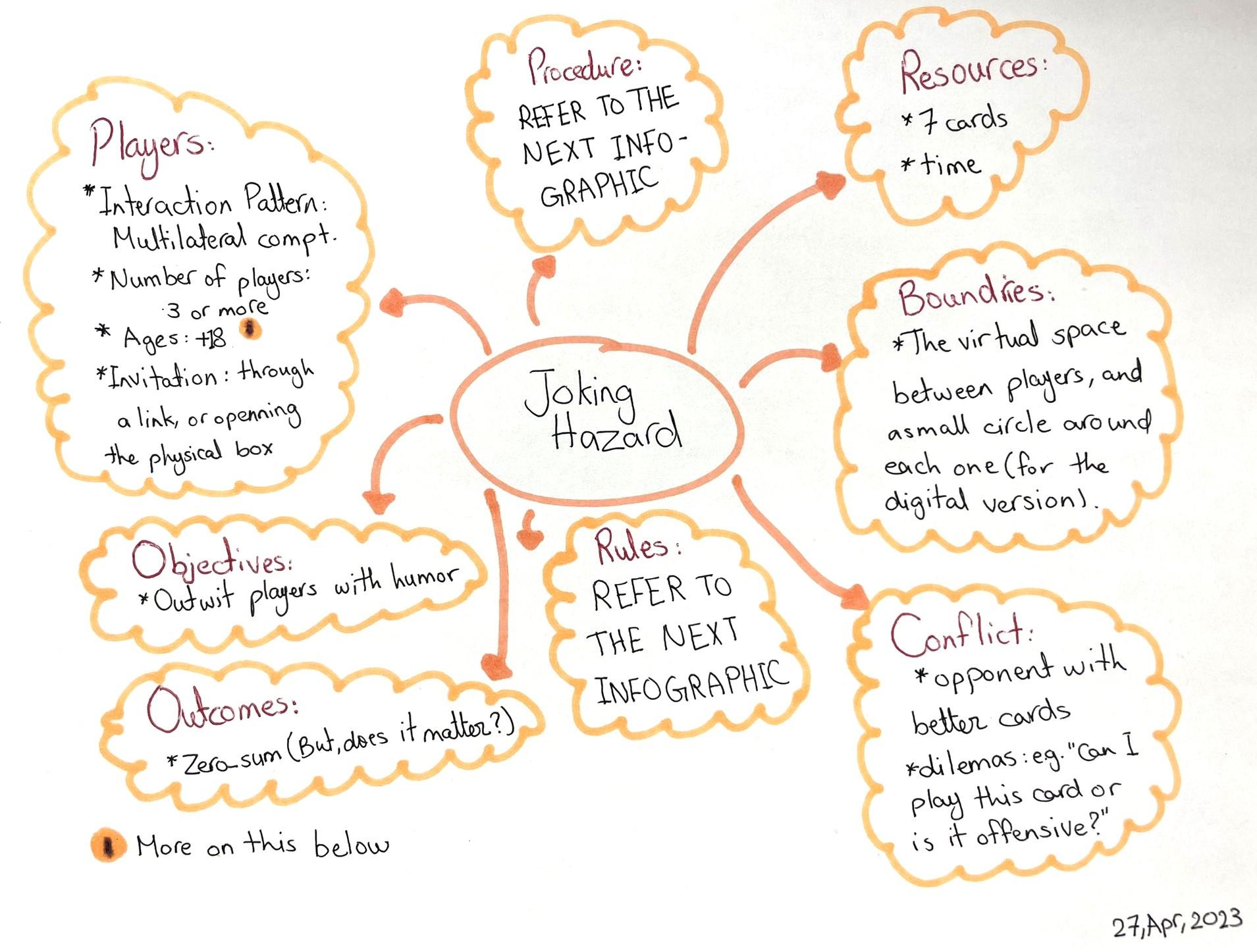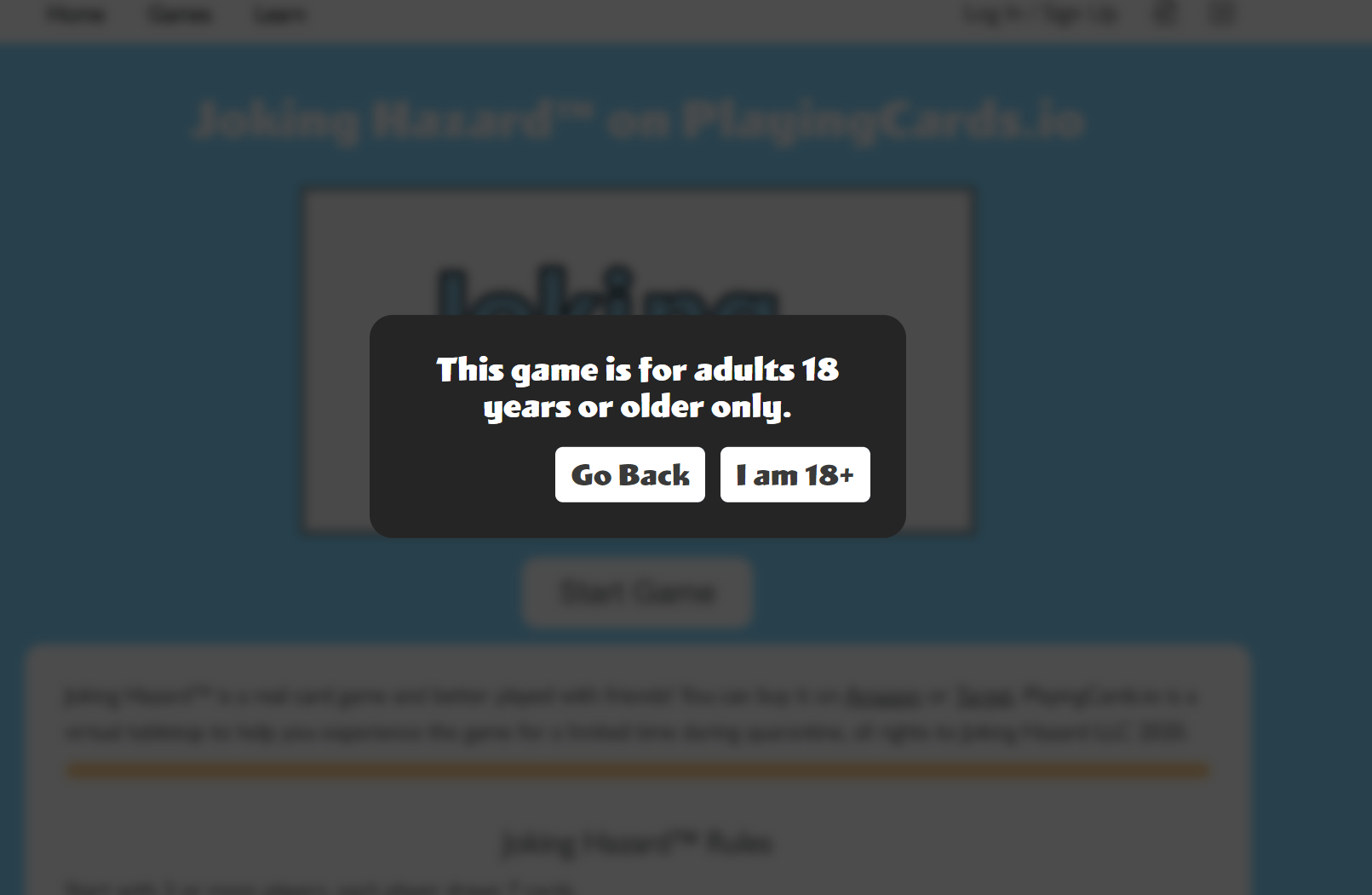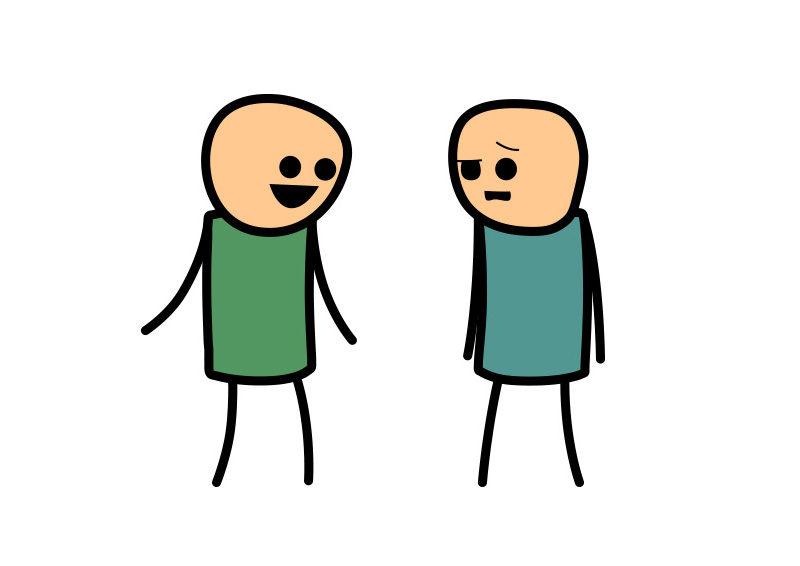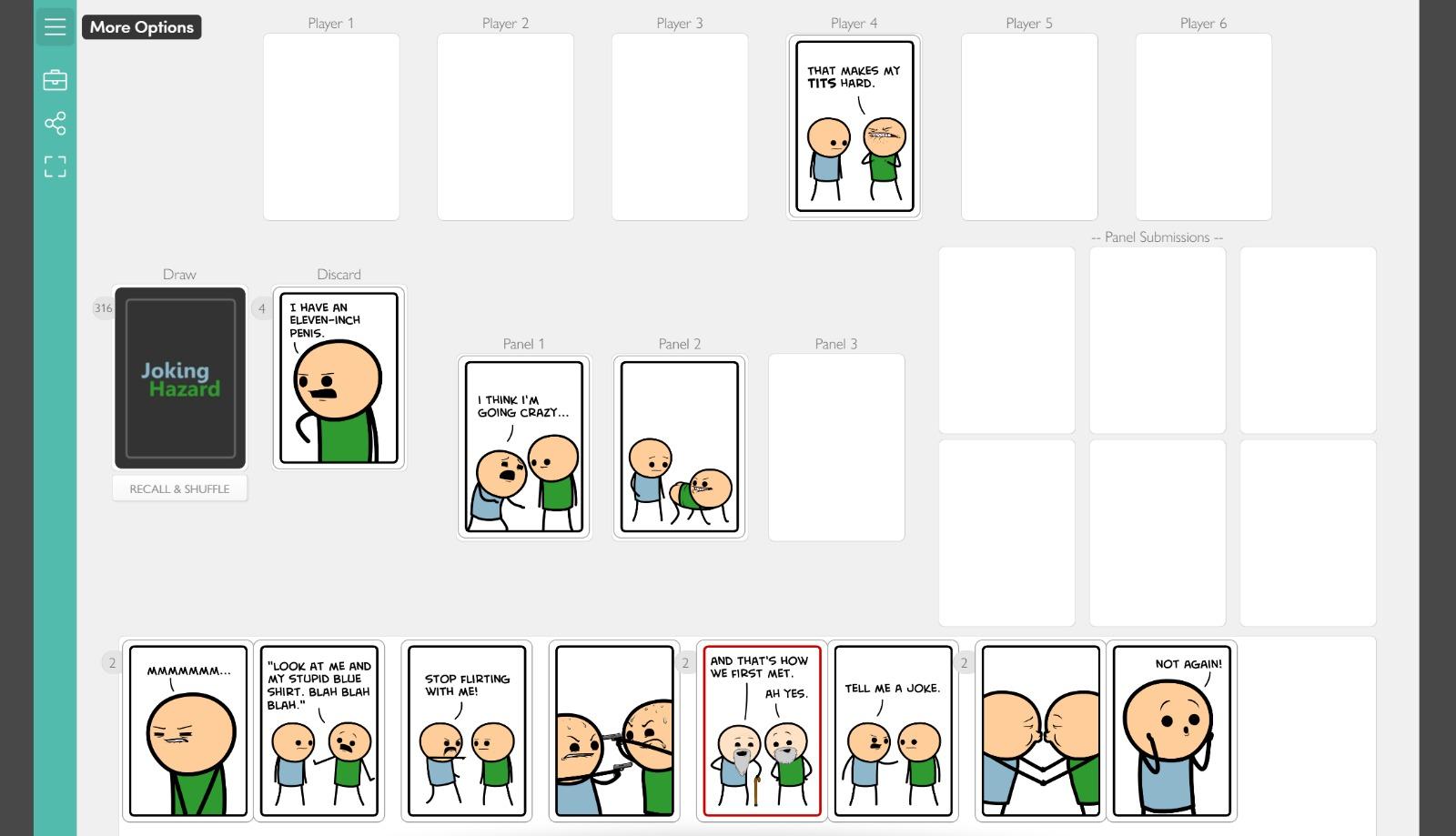Overview:
For this week, I will be analysing the game Joking Hazard. This card game was created by Cyanide & Happiness, known for their equally satire and chaotic short videos. In each round of Joking Hazard, players create a mini-comic of three cards. The first two cards are placed by the player who is the round’s judge. The rest of the players anonymously place a suggestion for the final piece of the comic from one of their 7 cards. The judge then, without knowing who placed each card, reveals the cards and judges which card offers the best punch line for the comic. The game targets groups of friends that are comfortable with each other with little to no boundaries between them.
Formal Elements:

Procedure and rules:

On the age limit:

Game Play Experience:
Joking Hazard promises a fun and humorous experience through creating outrageous comic strips and sharing them with others. Players create unexpected, funny, dark, and sometimes outrageous card combinations, which makes me argue that the type of fun the game offers is expression, more than challenge or any other type.
The game’s graphic design features colorful and humorous illustrations of the famous characters from Cyanide and Happiness with a cartoonish and exaggerated style that reinforces the game’s comedic tone. I find that the foolish drawing makes it bearable for players to go dark with the humor.

For a game this satire, there can be a concern of abuse or offensive behavior. The game does not address this issue and leaves it to the judgement of players.

Comparative Analysis:
The game Joking Hazard falls in the category of Judging Games. Other games in this category include Cards Agains Humanity, Apples to Apples, What Do You Meme, and Dixit. I will be comparing Joking Hazard to the first two games mentioned.
Joking Hazard strengths and weaknesses:
- Creative stimulation: The game requires players to create their own comic strips, which offers a unique kind of experience.
- Repeated play: Joking Hazard comes with over 350 cards, which provides a lot of variety and ensures that the game can be played multiple times without getting repetitive.
- Good for larger groups: Joking Hazard can be played with up to 12 players, which makes it a good choice for larger groups.
- Not suitable for all audiences: Joking Hazard features adult themes and may not be suitable for younger audiences or those who are easily offended. If it was to be played to it’s full potential, it is easily rated R.
- Limited interaction between players: The game doesn’t require much interaction between players during the game, which may make it less engaging for some players.
Joking Hazard vs. Cards Against Humanity:
- Both games are easy to learn and do not have a ton of rules or mechanics, making them suitable for new players.
- Both games come with a large number of cards, which ensures that the game can be played many, many times.
- Cards Against Humanity requires players to interact with each other during the game more than Joking Hazard does, which could make it a better choice for social gatherings.
- Both games features adult themes and may not be suitable for all audiences.
- Cards Against Humanity uses words as a medium for play, while Joking Hazard relies on mostly visuals and supporting scripts.
Joking Hazard vs. Apples to Apples:
- Unlike Joking Hazard, Apples to Apples features clean humor and is family-friendly, making it suitable for a wider audience that includes strangers. However, this family-friendly content of Apples to Apples may make it less appealing to adult audiences who are looking for more mature humor.
- Both games are easy to learn and do not have a ton of rules or mechanics, making them suitable for new players.
- Apples to Apples requires players to interact with each other during the game, which makes it a good choice for social gatherings.
- Unlike Joking Hazard, Apples to Apples has a smaller number of cards than other party games, which may make it less appealing for players who want more variety.
Kinds of Fun:
The game Joking Hazard relies of creating an expression kind of fun for players. Not only for those adding the punchline card, but also for those who are judging, as they get to use their own subjective sense of humor to decide with card is the funniest.
The issue with Joking Hazard (and other judging games)
The game has fallen into several pits, some specific to it while others extend over to other games in the genres. First, the online version of the game doesn’t mix players’ cards when they play them, meaning that the judging player can know exactly who added each card. While this didn’t matter in our game, it can definitely make the experience different (worse?) for other groups.
What designers of these games -Joking Hazard, Cards Against Humanity, What Do You Meme,..etc.- often do is that they design a game that can only be enjoyed in groups of close friends, whether knowingly or not. Playing with people that know each well allows for the darker jokes to come through as funny, for there exists mutual trust in everyone’s intentions. For example, jokes about topics like death, suicide, divorce, sex, and others might be offensive to some people, if not triggering. When playing with strangers, players aren’t comfortable sharing these kinds of jokes (as they should be). This often makes the game fall flat, and it just becomes a lame game.
What’s next for Joking Hazard?
While it was fun to play the game, I can see some changes that would make the experience better for players. This includes:
- Address concerns about offensive content and abuse by including clear guidelines or rules for acceptable behavior and consequences for violating them. Another suggestion to cater to more players is to offer players a filter in the beginning of the game where they can opt-out of cards with certain topics, such as sex, death..etc.
- Introduce a more strategic element to the gameplay, such as the ability to steal or swap cards, or adding more complex card combinations.
- Incentivising players by offering awards for best punch lines, which could be something similar to publishing the winning comic on social media. This could also create a community of players around the game.




